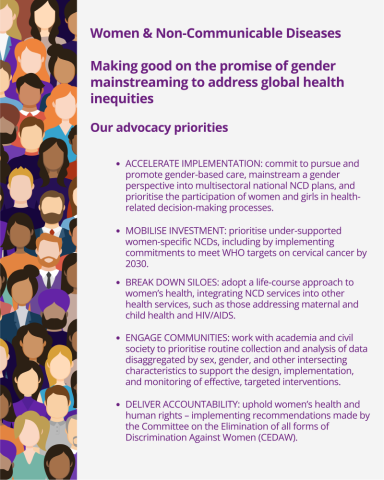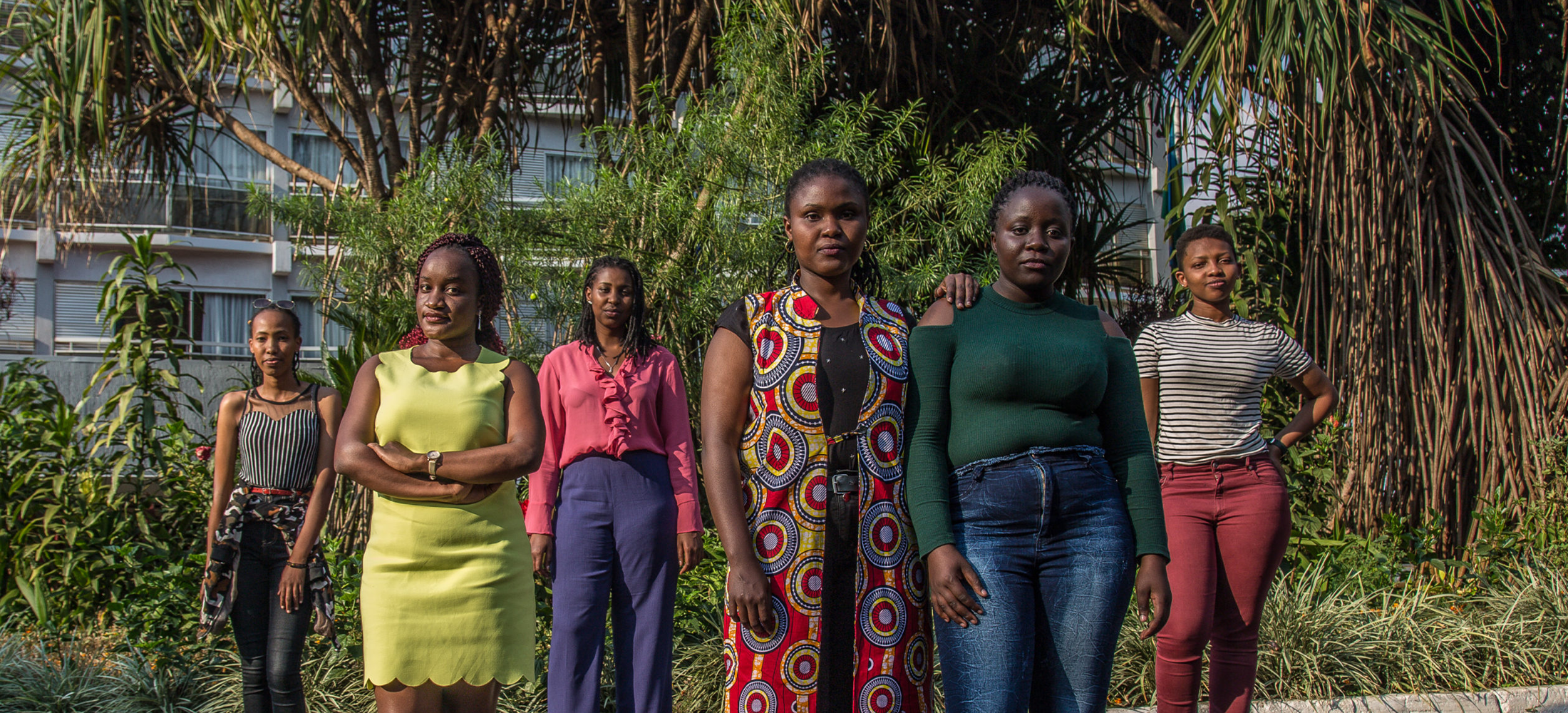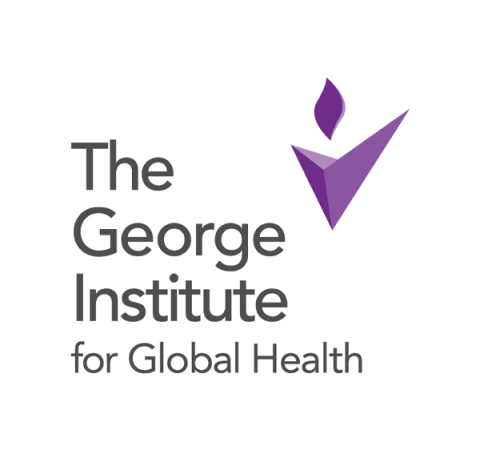In 2011, at the first UN High-Level Meeting (HLM) on Noncommunicable Diseases (NCDs), we saw Member States commit to pursuing and promoting gender-based approaches for the prevention and control of NCDs. Fourteen years on, as the fourth UN High-Level Meeting on NCDs and Mental Health (HLM4) approaches, the question remains: how do we make good on the promise of gender mainstreaming in the NCD agenda?
A gender‑responsive approach is critical because women and men experience NCDs differently, due to both biological differences and structural and societal factors, including gender roles, norms, and inequalities. To design and implement effective responses that promote health equity, we must recognise, understand, and address these differences.
All genders have different needs but women and girls, particularly in low-resource contexts, are most impacted. They experience unique NCD risk factors, like increased exposure to indoor air pollution due to cooking responsibilities, and face significant barriers accessing prevention, early diagnosis, treatment, and care. These barriers are the result of a range of factors, including discrimination and stigma, financial or mobility constraints, and the unequal impacts of poverty on women and girls. These challenges are exacerbated by a one-size-fits-all, male-centric bias in health research, medicine, and health policy design.
As a result, we cannot find effective NCD solutions for all unless gender is mainstreamed in NCD services and policymaking.
Gender at the HLM4 and beyond
The Zero Draft of the Political Declaration for HLM4 was almost completely silent on gender mainstreaming, despite its inclusion in Declarations at previous HLMs. Reportedly, some Member States also pushed back on language on equity and gender during negotiations of the draft.
But, with effort from civil society organisations and the academic community, and the support of Member States championing gender-responsiveness, we have seen positive steps to reflect gender in the current draft of the Political Declaration (Rev.3).
This version includes explicit acknowledgement of the crucial need for gender mainstreaming. It also includes recognition of the role of women in the health workforce and as caregivers; specific policy recommendations to address cervical cancer; steps to promote a life-course approach to strengthening health systems; and moves to integrate NCD services into routine health services, including maternal and child health and sexual and reproductive health programmes.
On the other hand, some key elements are still missing. The draft Declaration makes next to no mention of ensuring the meaningful participation in decision-making and policy design processes of civil society, academia, and affected communities, particularly women and girls. It also fails to adequately emphasise the crucial need for greater collection and analysis of data disaggregated by gender, sex, and other intersectional characteristics.
Beyond the text of the Declaration, it is important to consider how – and if – commitments will be implemented. Even with over a decade of global commitments, most countries are still not building equity into their NCD policy frameworks. A recent analysis by The George Institute for Global Health (TGI) of 65 integrated NCD plans (covering 89 countries) found that only 11 adopted a gender-responsive approach, and only one had a plan that was gender-transformative. Moreover, while many national plans commit to addressing gendered needs, they fail to take concrete steps to make this goal a reality by reflecting gender considerations in objectives, monitoring and evaluation frameworks, or budgets.
What’s next? A call to action for gender mainstreaming at all levels
It is vital that we centre gender in all of our discussions and policymaking, both at the HLM4 and beyond.
We need to maintain the consistent, proactive effort of gender champions to keep gender on the NCD agenda and ensure current commitments to gender mainstreaming in the draft Political Declaration are protected.
We need to make sure commitments are translated into action, starting with the five key policy actions recommended by TGI in their Call to Action and prevent backsliding by ensuring robust, gender-responsive accountability processes.
Proactive focus on gender is needed to ensure concrete steps are taken to incorporate gender at all levels – otherwise, there is a risk that gender is yet again sidelined, rather than recognised as a key structural determinant of health for all.








